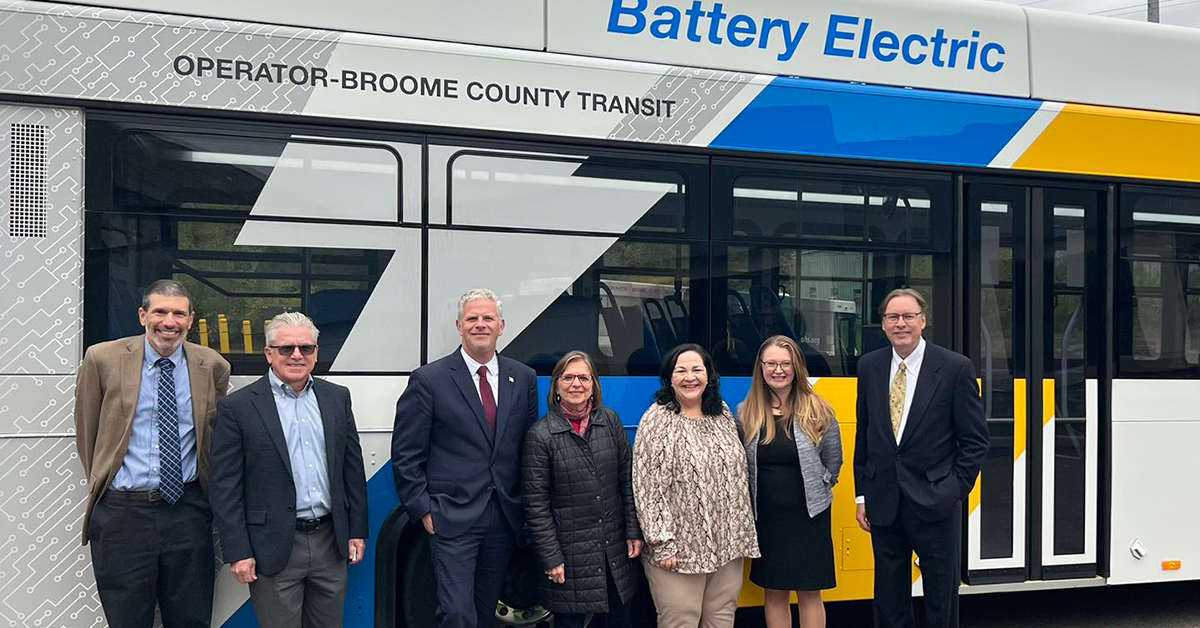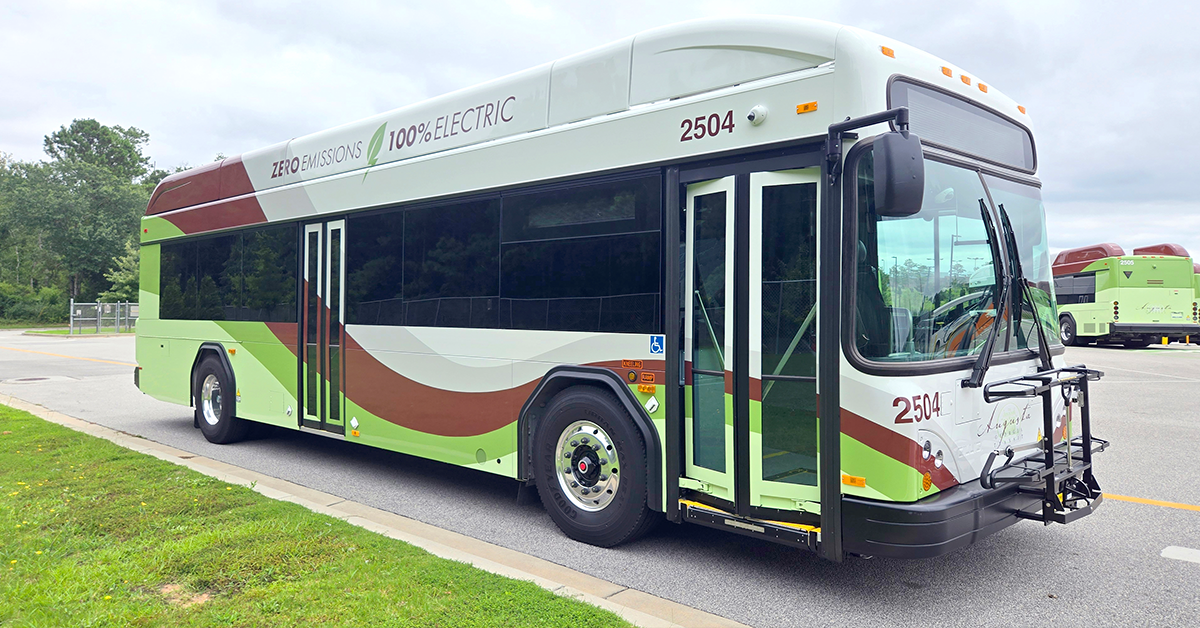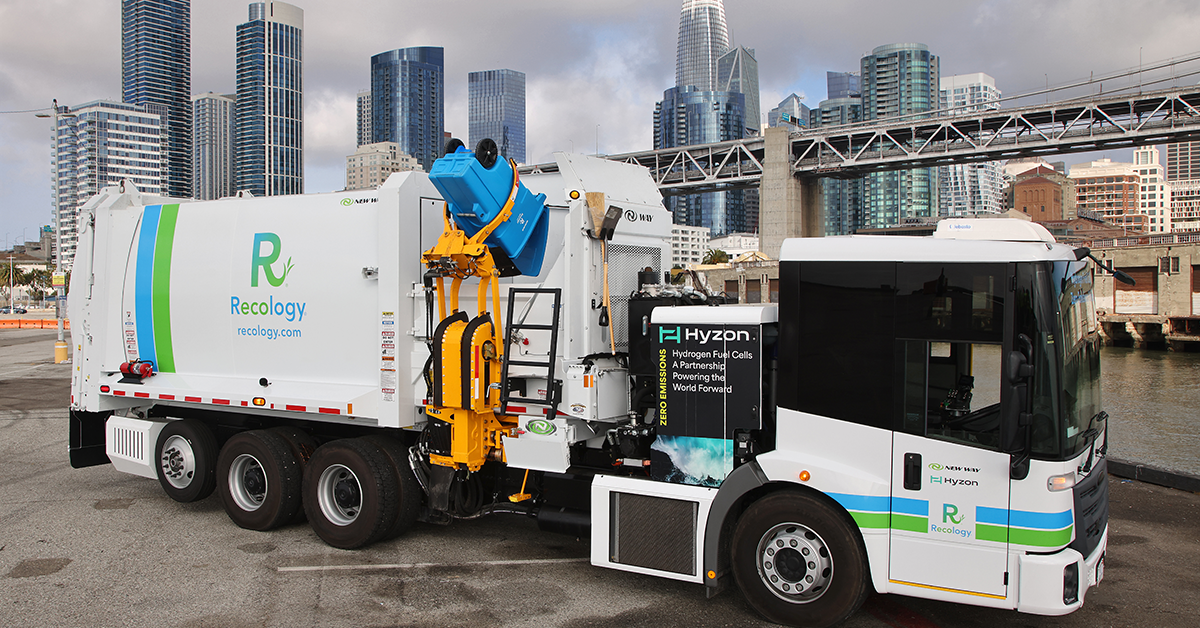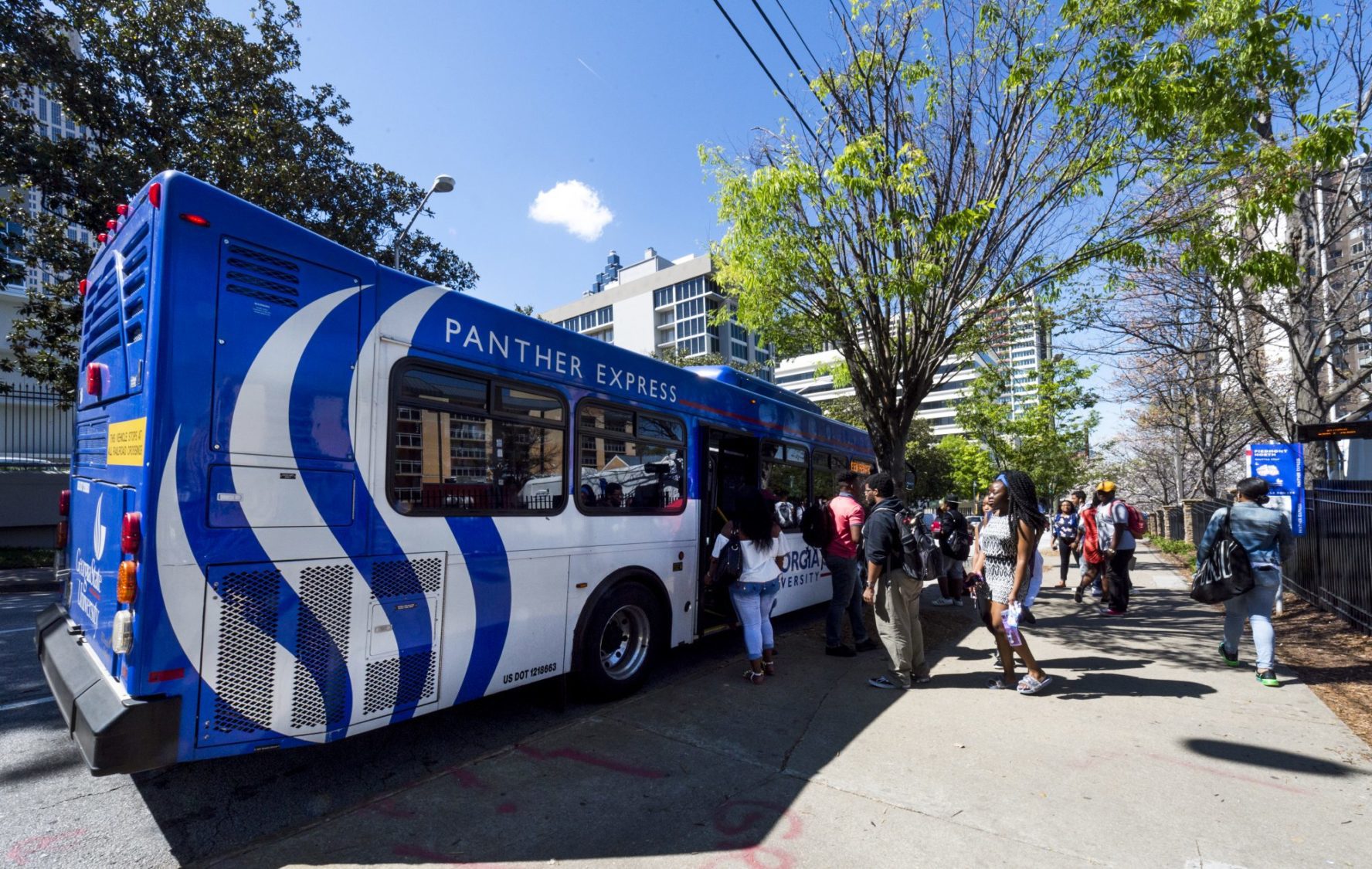CTE Kicks Off Design & Build of Next Generation Proterra Bus Powered by Hydrogenics Fuel Cells

Center for Transportation and the Environment to oversee build and operations of new zero emission bus
Atlanta, GA - The Center for Transportation and the Environment (CTE) kicked off a new fuel cell bus project featuring the latest transit technology from Proterra coupled with Hydrogenics HD30 fuel cell modules. The CTE project team includes public and private organizations that will design, build, test, and demonstrate a state-of-the-art hybrid fuel cell bus.
The demonstration will showcase progress towards commercially viable use of hydrogen fuel cells in transit service. Capital Metropolitan Transportation Authority in Austin, TX will operate the bus for one year followed by a second year with the District Department of Transportation in Washington, DC.
Located in Greenville, SC, Proterra is an American bus manufacturer specializing in zero emission buses. The Proterra bus is on the forefront of advanced transportation technology, with plug-in rechargeable batteries, a hydrogen fuel cell system and an efficient all electric drivetrain, allowing it to have water vapor as the only emission.
The new Proterra bus design will improve efficiency and effectively double the available power over the first generation bus in the same amount of space by integrating two 30 kW Hydrogenics' Next Generation Fuel Cell Power Modules (FCPM). The Hydrogenics' FCPM's reduction in components and simplified integration requirements will also improve bus affordability. Hydrogenics is a leading developer and manufacturer of hydrogen generation and hydrogen-based power modules.
"This is another award from CTE that further demonstrates our technology on Proterra buses across North America," said Daryl Wilson, Hydrogenics' President and Chief Executive Officer. "These zero-emission vehicles are built to be durable as well as clean - protecting large cities from dangerous smog and particulate matter often found with diesel buses today. We have a long history of working with Proterra in providing zero--- emission transportation applications which are seeing increased demand as interest in hydrogen continues to build."
The new Proterra bus design will improve efficiency and effectively double the available power over the first generation bus in the same amount of space by integrating two 30 kW Hydrogenics' Next Generation Fuel Cell Power Modules (FCPM). The Hydrogenics' FCPM's reduction in components and simplified integration requirements will also improve bus affordability. Hydrogenics is a leading developer and manufacturer of hydrogen generation and hydrogen-based power modules.
"This is another award from CTE that further demonstrates our technology on Proterra buses across North America," said Daryl Wilson, Hydrogenics' President and Chief Executive Officer. "These zero-emission vehicles are built to be durable as well as clean - protecting large cities from dangerous smog and particulate matter often found with diesel buses today. We have a long history of working with Proterra in providing zero--- emission transportation applications which are seeing increased demand as interest in hydrogen continues to build."
"The project team is aiming for a revolutionary fuel cell bus that is easier to maintain, more fuel efficient, and less expensive than previous Proterra fuel cell buses", said Erik Bigelow, Lead Program Manager at CTE. "The project team is truly excited to get the design and build underway." The project is part of the National Fuel Cell Bus Program funded by the U.S. Department of Transportation's Federal Transit Administration. The project is equally funded by Federal and local dollars. The CTE project will provide operational data for the National Renewable Energy Laboratory's Fuel Cell Transit Bus Evaluations.
About CTE
The Center for Transportation and the Environment (CTE) is a nonprofit, 501(c)(3) organization based in Atlanta, Georgia that develops technologies and implements solutions to achieve energy and environmental sustainability. Since its founding in 1993, CTE has managed a portfolio of more than $250 million in federal, state, and local cost- shared research, development, and demonstration projects involving more than 200 organizations in the advanced transportation technology field. CTE has facilitated and leveraged funding for its projects and initiatives from the U.S. Departments of Defense, Energy, Interior, and Transportation, as well as from the U.S. Army and NASA, among many others.





